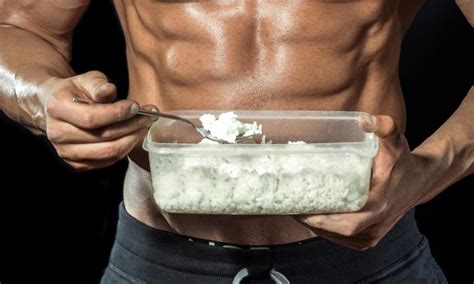What macro split best fuels intense workouts and rapid recovery for optimal male performance?

Unlocking Peak Performance: The Macro Split Advantage
For men pushing their limits in the gym, on the field, or in demanding physical activities, the right nutritional strategy isn’t just an advantage—it’s a necessity. While calorie intake dictates weight management, the specific distribution of macronutrients (protein, carbohydrates, and fats) directly impacts energy levels, muscle repair, recovery speed, and overall hormonal balance crucial for optimal male performance. Getting your macro split right can mean the difference between plateaus and progress, fatigue and sustained intensity.

The Pillars of Performance: Protein, Carbs, and Fats
Each macronutrient plays a distinct, indispensable role in fueling and repairing the male physique. Understanding their functions is the first step toward crafting an effective macro split.
Protein: The Architect of Muscle and Recovery
Often hailed as the king of macros, protein is vital for muscle protein synthesis, repairing tissue damage from intense workouts, and supporting a robust immune system. For men engaged in strenuous training, higher protein intake is critical to prevent muscle breakdown and facilitate rapid recovery. Aim for 1.6-2.2 grams of protein per kilogram of body weight (0.7-1.0 grams per pound) daily, distributed throughout the day.

Carbohydrates: The Engine’s Primary Fuel
Carbohydrates are your body’s preferred and most efficient source of energy, especially during high-intensity exercise. They replenish glycogen stores in muscles and the liver, which are crucial for endurance and power output. Without adequate carbohydrates, performance suffers, and fatigue sets in quickly. Focus on complex carbohydrates like whole grains, fruits, and vegetables for sustained energy, and simpler carbs post-workout for quick glycogen replenishment. Intake can range from 3-7 grams per kilogram of body weight, depending on activity level and intensity.

Fats: Hormonal Health and Sustained Energy
Often misunderstood, dietary fats are essential for hormone production (including testosterone, vital for male performance), nutrient absorption, and long-term energy. Healthy fats, found in avocados, nuts, seeds, and olive oil, reduce inflammation and support overall cellular function. Don’t fear fats; they are crucial for maintaining optimal health and supporting intense training. Aim for 0.8-1.2 grams of fat per kilogram of body weight.
Crafting Your Optimal Macro Split: General Guidelines
While individual needs vary, a common starting point for men engaged in intense training and seeking rapid recovery and performance gains often looks like this:
- Protein: 30-40% of total daily calories
- Carbohydrates: 40-50% of total daily calories
- Fats: 20-30% of total daily calories
For example, a man consuming 3000 calories per day might aim for:
- Protein: 225-300g (30-40% of 3000 calories = 900-1200 calories / 4 cal/g)
- Carbohydrates: 300-375g (40-50% of 3000 calories = 1200-1500 calories / 4 cal/g)
- Fats: 67-100g (20-30% of 3000 calories = 600-900 calories / 9 cal/g)
These percentages can be adjusted. Men focused on significant muscle gain might lean towards slightly higher carbs and protein, while those in a cutting phase might slightly reduce carbs and fats while keeping protein high to preserve muscle.

The Critical Role of Nutrient Timing
Beyond the daily split, when you consume your macros significantly impacts performance and recovery. Prioritizing carbohydrates and protein around your workout (pre- and post-training) is key. A pre-workout meal provides readily available energy, while a post-workout meal kickstarts recovery and muscle repair by rapidly replenishing glycogen and providing amino acids.
- Pre-Workout (1-3 hours prior): Focus on complex carbs and moderate protein.
- Post-Workout (within 1-2 hours): Rapidly digestible carbs and protein are crucial.
Individualization and Continuous Adaptation
No single macro split is perfect for everyone. Factors like training intensity, duration, body composition goals, metabolism, and even stress levels will influence your ideal ratio. It’s crucial to experiment, track your progress, and listen to your body’s signals. Adjust your macro split based on how you feel, your energy levels, recovery rate, and performance metrics. Consulting with a sports nutritionist can provide personalized guidance.

Conclusion
Optimizing your macronutrient split is a cornerstone of enhancing male performance, fueling intense workouts, and accelerating recovery. By strategically balancing protein for repair, carbohydrates for energy, and healthy fats for hormonal health, you can unlock your full physical potential. Remember, consistency, quality food choices, and continuous adjustment based on your body’s responses are paramount to achieving sustained high performance and robust health.








